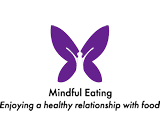Weight Loss Eating Plan For Your Mood
 When considering a weight loss eating plan, it’s important not to focus simply on calorie intake but to also consider the quality of the foods you’re eating and their impact on your overall health, including your mood. If you’re trying to lose weight then supporting your mood is really key, because if you feel down or anxious this can lead to comfort eating, ‘grazing’ and sweet cravings, making weight control more difficult. The body needs a range of nutrients to help manufacture the brain chemicals that make us feel calm and happy- serotonin is one of those brain chemicals. A weight loss eating plan should therefore contain adequate nutrients such as vitamins and minerals, to help support brain function and mood. What many people don’t realise is that the brain and the gut are intimitely linked- this means that what we eat can have a considerable effect on how we feel psychologically.
When considering a weight loss eating plan, it’s important not to focus simply on calorie intake but to also consider the quality of the foods you’re eating and their impact on your overall health, including your mood. If you’re trying to lose weight then supporting your mood is really key, because if you feel down or anxious this can lead to comfort eating, ‘grazing’ and sweet cravings, making weight control more difficult. The body needs a range of nutrients to help manufacture the brain chemicals that make us feel calm and happy- serotonin is one of those brain chemicals. A weight loss eating plan should therefore contain adequate nutrients such as vitamins and minerals, to help support brain function and mood. What many people don’t realise is that the brain and the gut are intimitely linked- this means that what we eat can have a considerable effect on how we feel psychologically.
A Poor Diet Can Affect The Brain
If you ever feel mentally ‘sluggish’ or a bit low, consider the health of your gut. The brain and gut constantly communicate with each other, they’re not isolated organs working independently. 80-90% of serotonin, the happy brain chemical, is actually made in your gut. We have trillions of bacteria in our gut, both good and bad, and our gut ecosystem is hugely influenced by diet. Is your diet high in processed foods, those containing sugar, white flour and low in fibre? Poor food choices can lead to an unhealthy gut, which in turn can lead to inflammatory diseases throughout the body. The brain can be affected by a poor diet, as it’s influenced by the health of the gut, potentially leading to mental health and mood problems. The gut thrives on a whole food, unprocessed diet- gut bacteria use dietary fibre to keep the gut healthy, and a healthy gut can promote a healthy body, including a healthy mind. When I work with clients, I encourage them to follow a weight loss eating plan that is nutrient-dense, that is, one including vegetables, fruit, pulses, whole grains, nuts and seeds. Processed foods tend to be stripped of their fibre, whereas those that are still in their natural state have more of their fibre and nutrients intact. 
Keeping ‘Bad’ Gut Bacteria in Check
Keeping your gut in good working order is vital for good health. Certain foods can cause gut problems for some people, such as constipation. Gluten (found in bread, pasta and white flour products such as cakes and biscuits) and sugar can contribute to gut problems, as well as general health problems. Unfortunately our supermarkets and cafes entice us with numerous highly processed foods that are not gut-friendly. Sugar feeds ‘bad’ gut bacteria, whereas fibre-rich foods, ie unprocessed, natural foods such as fresh vegetables feed ‘good’ gut bacteria. It’s the ‘good’ bacteria in our guts that we need to keep topped up, as they’re involved in a huge range of bodily processes, from food digestion, the absorption and manufacture of vitamins and minerals, and immunity. I encourage clients to follow a nutritious weight loss eating plan containing good quality, fibre-rich, wheat-free carbs such as brown rice, oats, lentils and beans, and to try to cut down on wheat-containing and/or sugar-containing cakes, biscuits, pasta, pastry products and sugar-laden drinks- many of these tend to be low in fibre, vitamins and minerals. For good gut health, apart from helping clients to improve their diet, I also encourage clients to consider their lifestyle, as factors such as high stress levels, antibiotic use and excessive alcohol intake can disrupt the health of the gut. If you start off by gradually reducing your sugar intake, increasing your vegetables and swapping poor quality carbs for better quality carbs, you could start feeling a whole lot better.
Ultimately, it’s all about balance- the occasional treat as part of a weight loss eating plan is fine, especially since eating a perfect diet 100% of the time is unrealistic and unsustainable. No one food is bad for you, it depends how much of it you eat and how often you eat it. A realistic weight loss eating plan is one where you might aim to eat pretty well most of the time (approximately 80% of the time)- I call this 80/20 eating- but allow yourself to bend the rules just a small proportion of the time. You should find that any improvement you make on your previous dietary habits, even just small changes, will result in you feeling a whole lot better both in body and mind.
If you would like help in creating a weight loss eating plan, give me a call for an initial chat on 07961 423120 or email me at info@mindfuleating.org.uk
I am based in Camberley, Surrey, but I also offer Skype sessions for clients living in other parts of the UK and elsewhere.

